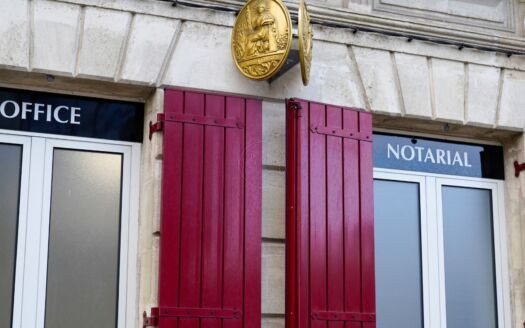French Mortgage? Sorry we don’t want to lend you…
When applying for a mortgage in France, individuals who aren’t residents of the country often face challenges, particularly if they’re navigating the process alone and are unfamiliar with it. Our expertise, honed over decades and through countless successful client stories, can be invaluable in securing the best loans and achieving property ownership dreams in France.
Feel free to contact us regarding applying for a French mortgage.
France has much to offer, from its beautiful countryside and weather to its stunning beaches, mountains, cities, and the globally recognized French joie de vivre. However, turning this dream into a reality requires adequate resources and preparation. We aim to clarify why some mortgage applications are unsuccessful, ensuring you’re well-informed before starting your journey.
One major reason for mortgage refusal by French banks is the use of overdrafts. In France, this practice is culturally frowned upon and viewed as a sign of poor savings and financial management skills. Changing a bank’s decision after a refusal can be challenging. Hence, it’s wise to clear any overdrafts before applying.
The absence of a credit check system in France means underwriters meticulously examine income and expenditures. Inconsistencies, such as undeclared income, cash rental income, and missing financial documents, can lead to application rejection.
French banks often require a three-year track record for non-salary income (self employed/company directors), making it difficult to consider income from new jobs or recently established companies. Although large investments may seem sufficient, banks generally look for a proven income track record. Private banks, however, might offer more flexibility in such cases.
The clarity and reliability of an applicant’s financial situation are crucial. While employees of globally recognized companies may find it easier to secure a mortgage, self-employed individuals, especially those outside Europe, might face difficulties unless their finances are transparent and possibly audited by a reputable firm.
Feel free to contact us regarding applying for a French mortgage.
Additionally, using borrowed funds or company assets for a mortgage deposit is generally discouraged. Banks prefer applicants with substantial savings and require a clear financial history for such transactions.
Post-purchase financial stability is also important. Banks have found that applicants who invest all their resources into a property often struggle with mortgage payments. Hence, maintaining sufficient savings after the purchase is advisable.
French Mortgage update 2024 Q1
The type of property can influence a bank’s decision as well. Properties that are hard to resell, like chateaux or specialised commercial properties, are less likely to be financed. However, if the property is a combination of residential and special use, there may be exceptions.
For off-plan properties (like a new ski property), ensuring the developer has a financial guarantee of completion from a French institution is essential. Banks are hesitant to finance purchases without this guarantee.
Banks also limit their exposure to risk in large developments by capping the number of financed properties. This can affect applicants who find a suitable bank but discover it has reached its lending limit for a particular development.
Political or professional exposure can also be a hindrance, as banks are cautious about lending to diplomats, government officials, or employees of certain organizations due to potential legal complexities.
If an applicant is unable to obtain necessary insurance due to medical conditions or age, this can lead to application rejection. Similarly, US taxpayers might face difficulties due to FATCA reporting requirements, though there are limited solutions.
Equity release mortgages are not commonly offered by French retail banks, with a preference for traditional mortgage structures. However, private banks might be more flexible for high-value transactions.
Finally, French private banks have specific preferences for the use of funds released from equity, favouring activities like paying off existing debts, purchasing or improving properties, buying high-value items, or creating financial assets managed by the bank.
Navigating the French mortgage system can be complex, but understanding and adapting to these nuances can ultimately be rewarding. For those short on time, seeking expert assistance can streamline the process.
Feel free to contact us regarding applying for a French mortgage.




